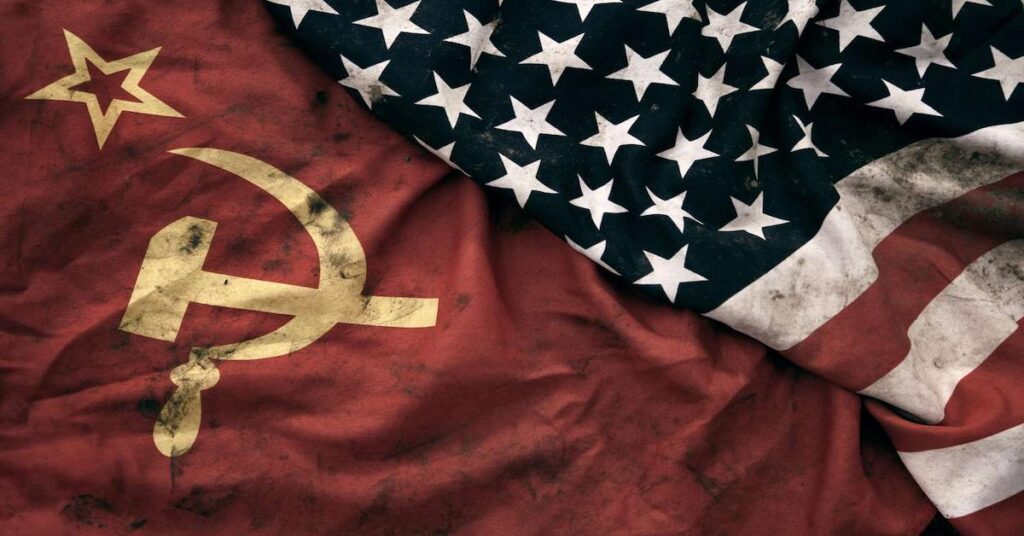What is COLD WAR?
The Cold War was an extended battle between the United States and the Soviet Union that started as a consequence of the acquiescence of Hitler’s Germany. In 1941, Nazi hostility against the USSR transformed the Soviet system into a partner of the Western popular governments.


Credits: thoughtco
The War was consequently not only a battle between the US and the USSR but a worldwide clash that impacted numerous nations, especially the mainland of Europe. For sure, Europe, isolated into two coalitions, became one of the principal theatres of the conflict.
Reasons for cold conflict:
Enduring from the finish of World War II in 1945 until the mid-1990s, the Cold War was one of the main occasions of the twentieth hundred years. At its heart, the Cold War was basically a ‘go head to head’ or contest between the United States and the Soviet Union after World War II.
Students of history have distinguished a few makes that drove the episode of the Cold War, including pressures between the two countries toward the finish of World War II, the philosophical struggle between both the United States and the Soviet Union, the development of atomic weapons, and the feeling of dread toward socialism in the United States.
Impacts of the Cold War:
The impacts of the Cold War are,
- During World War 2 the United Kingdom, France, and the United States adjusted one more to overcome Nazi Germany. The USSR would join this coalition following Operation Barbarossa – the intrusion of Russia by Nazi Germany. There were guarantees that the partnership would proceed well after the conflict.
- After the conflict, be that as it may, strains fired ascending. The USA was the most grounded power that arose after the conflict. It was a superpower in monetary and military qualities.
- The USSR was the second most remarkable nation and it had a vital impact on Germany’s loss in the conflict. This expanded its renown on the planet.
- After the conflict, in Eastern Europe, numerous nations had socialist legislatures. These countries saw the USSR with ideal eyes. Those that didn’t, were supplanted by legislatures that checked out at the USSR likewise
- The USA, as well as the Western European nations, considered socialism to be a danger to its lifestyle and opportunity.
Nuclear Arms Race:
The United States had fostered its nuclear weaponry during the last long periods of the conflict through its clandestine program called the Manhattan Project. With the nuclear bombarding of Japan, the United States started the period of atomic weapons and the atomic weapons contest.
Significant Event of the early Cold War:
In June 1950, the principal military activity of the Cold War started when the Soviet-upheld North Korean People’s Army attacked its favorable Western neighbor toward the south. Numerous American authorities dreaded this was the most vital phase in a socialist mission to assume control over the world and considered that neutrality was impossible.
Conclusion:
The generally tranquil breakdown of socialism in Eastern Europe in 1989, the reunification of Germany in 1990, and the crumbling of the Soviet Union in 1991 customarily meant the finish of the Cold War, which had overwhelmed worldwide relations for more than 45 years, This is What is COLD WAR has happened.
Start your reading goal right here and also educate yourselves in the technical aspects too. We have a tailored piece of content to make you feel at ease. Visit our article page- Calanjiyam
Calanjiyam Consultancies and Technologies.
Credits: The Life Guide
FAQ’S
What does the USSR stand for?
USSR Stands for
Union of Soviet Socialist Republics
What are the 15 countries of the USSR?
The 15 countries of the USSR are,
Armenia, Azerbaijan, Belarus, Estonia, Georgia, Kazakhstan, Kyrgyzstan, Latvia, Lithuania, Moldova, Russia, Tajikistan, Turkmenistan, Ukraine, and Uzbekistan.
